Yuanbo Fang
S2SBench: A Benchmark for Quantifying Intelligence Degradation in Speech-to-Speech Large Language Models
May 20, 2025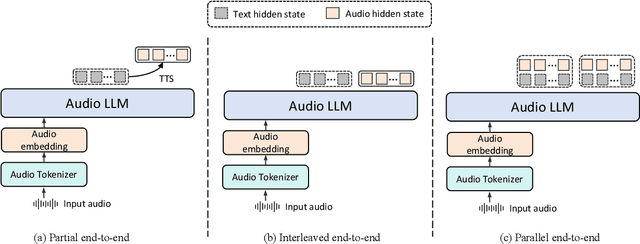

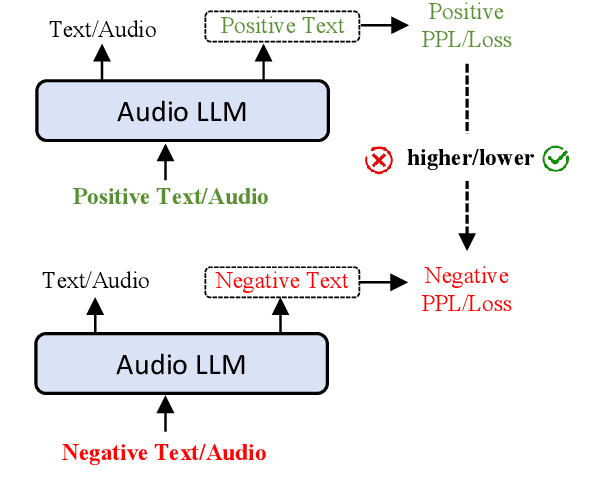
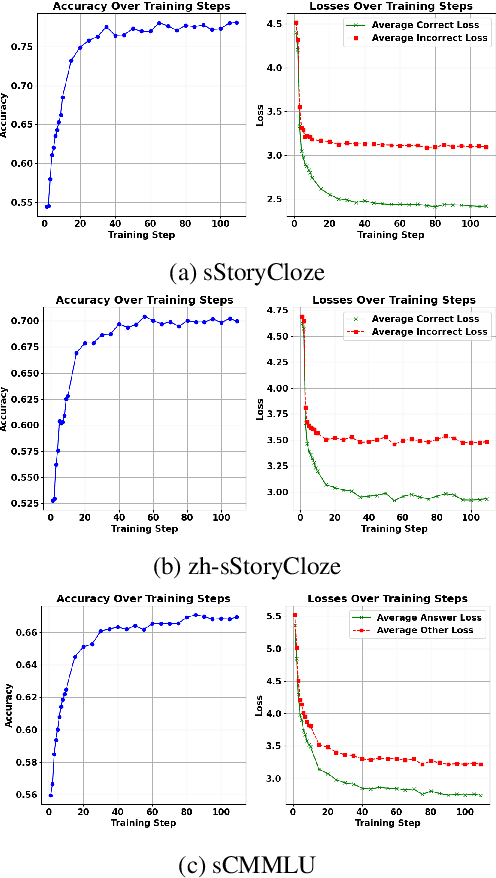
Abstract:End-to-end speech large language models ((LLMs)) extend the capabilities of text-based models to directly process and generate audio tokens. However, this often leads to a decline in reasoning and generation performance compared to text input, a phenomenon referred to as intelligence degradation. To systematically evaluate this gap, we propose S2SBench, a benchmark designed to quantify performance degradation in Speech LLMs. It includes diagnostic datasets targeting sentence continuation and commonsense reasoning under audio input. We further introduce a pairwise evaluation protocol based on perplexity differences between plausible and implausible samples to measure degradation relative to text input. We apply S2SBench to analyze the training process of Baichuan-Audio, which further demonstrates the benchmark's effectiveness. All datasets and evaluation code are available at https://github.com/undobug/S2SBench.
Baichuan-Audio: A Unified Framework for End-to-End Speech Interaction
Feb 24, 2025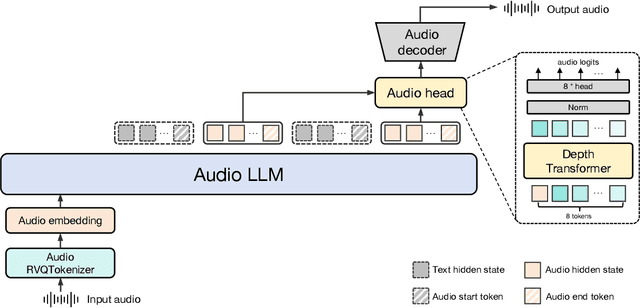

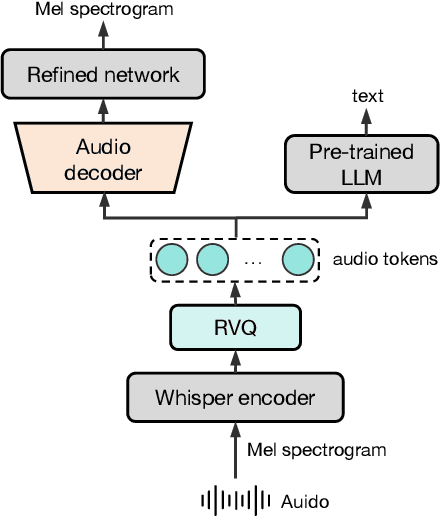
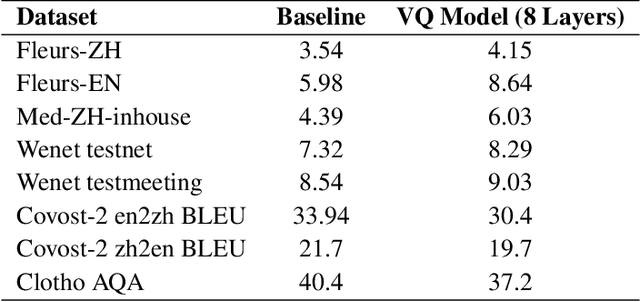
Abstract:We introduce Baichuan-Audio, an end-to-end audio large language model that seamlessly integrates audio understanding and generation. It features a text-guided aligned speech generation mechanism, enabling real-time speech interaction with both comprehension and generation capabilities. Baichuan-Audio leverages a pre-trained ASR model, followed by multi-codebook discretization of speech at a frame rate of 12.5 Hz. This multi-codebook setup ensures that speech tokens retain both semantic and acoustic information. To further enhance modeling, an independent audio head is employed to process audio tokens, effectively capturing their unique characteristics. To mitigate the loss of intelligence during pre-training and preserve the original capabilities of the LLM, we propose a two-stage pre-training strategy that maintains language understanding while enhancing audio modeling. Following alignment, the model excels in real-time speech-based conversation and exhibits outstanding question-answering capabilities, demonstrating its versatility and efficiency. The proposed model demonstrates superior performance in real-time spoken dialogue and exhibits strong question-answering abilities. Our code, model and training data are available at https://github.com/baichuan-inc/Baichuan-Audio
Baichuan-Omni-1.5 Technical Report
Jan 26, 2025
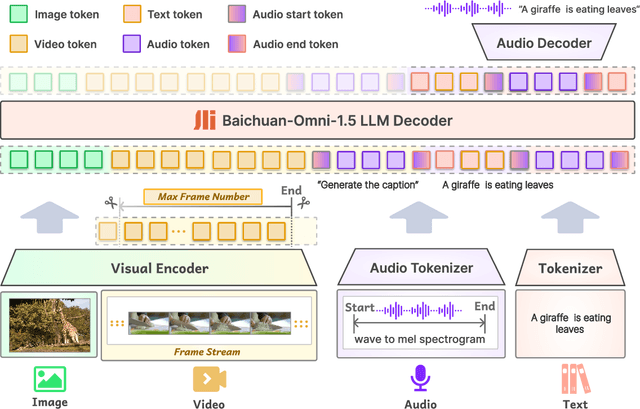
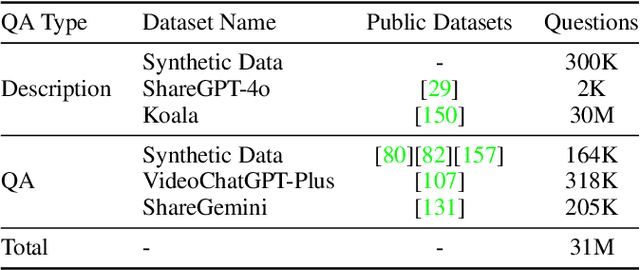
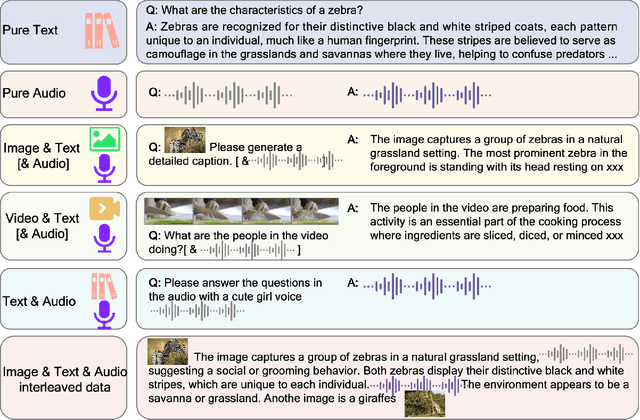
Abstract:We introduce Baichuan-Omni-1.5, an omni-modal model that not only has omni-modal understanding capabilities but also provides end-to-end audio generation capabilities. To achieve fluent and high-quality interaction across modalities without compromising the capabilities of any modality, we prioritized optimizing three key aspects. First, we establish a comprehensive data cleaning and synthesis pipeline for multimodal data, obtaining about 500B high-quality data (text, audio, and vision). Second, an audio-tokenizer (Baichuan-Audio-Tokenizer) has been designed to capture both semantic and acoustic information from audio, enabling seamless integration and enhanced compatibility with MLLM. Lastly, we designed a multi-stage training strategy that progressively integrates multimodal alignment and multitask fine-tuning, ensuring effective synergy across all modalities. Baichuan-Omni-1.5 leads contemporary models (including GPT4o-mini and MiniCPM-o 2.6) in terms of comprehensive omni-modal capabilities. Notably, it achieves results comparable to leading models such as Qwen2-VL-72B across various multimodal medical benchmarks.
Multi-Scale Temporal Transformer For Speech Emotion Recognition
Oct 01, 2024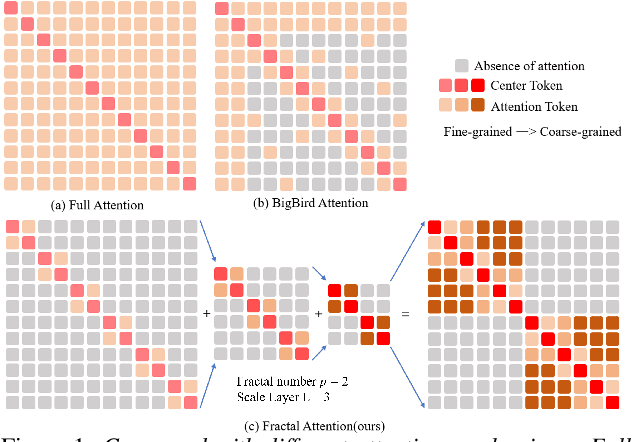

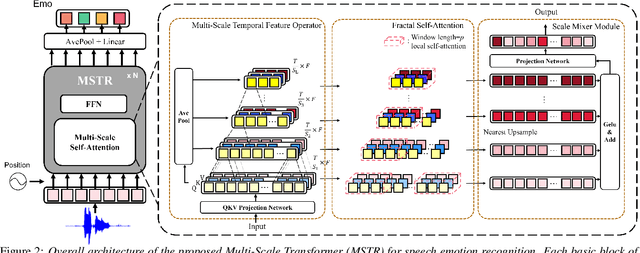
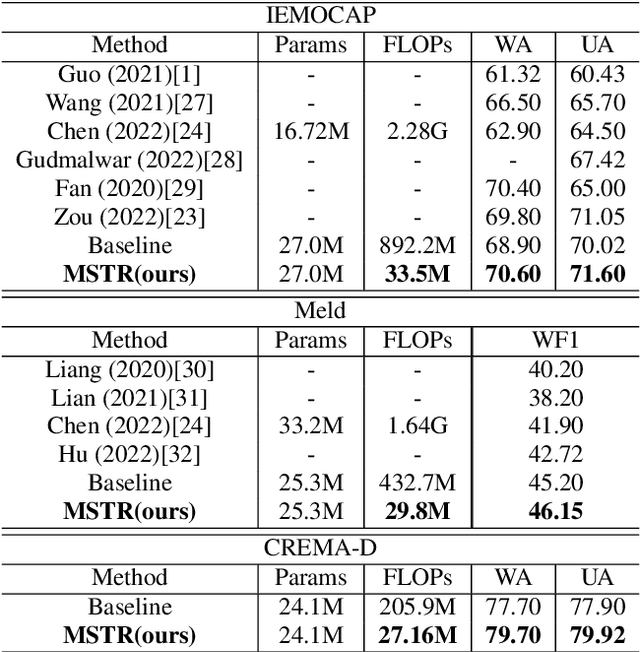
Abstract:Speech emotion recognition plays a crucial role in human-machine interaction systems. Recently various optimized Transformers have been successfully applied to speech emotion recognition. However, the existing Transformer architectures focus more on global information and require large computation. On the other hand, abundant speech emotional representations exist locally on different parts of the input speech. To tackle these problems, we propose a Multi-Scale TRansfomer (MSTR) for speech emotion recognition. It comprises of three main components: (1) a multi-scale temporal feature operator, (2) a fractal self-attention module, and (3) a scale mixer module. These three components can effectively enhance the transformer's ability to learn multi-scale local emotion representations. Experimental results demonstrate that the proposed MSTR model significantly outperforms a vanilla Transformer and other state-of-the-art methods across three speech emotion datasets: IEMOCAP, MELD and, CREMAD. In addition, it can greatly reduce the computational cost.
 Add to Chrome
Add to Chrome Add to Firefox
Add to Firefox Add to Edge
Add to Edge